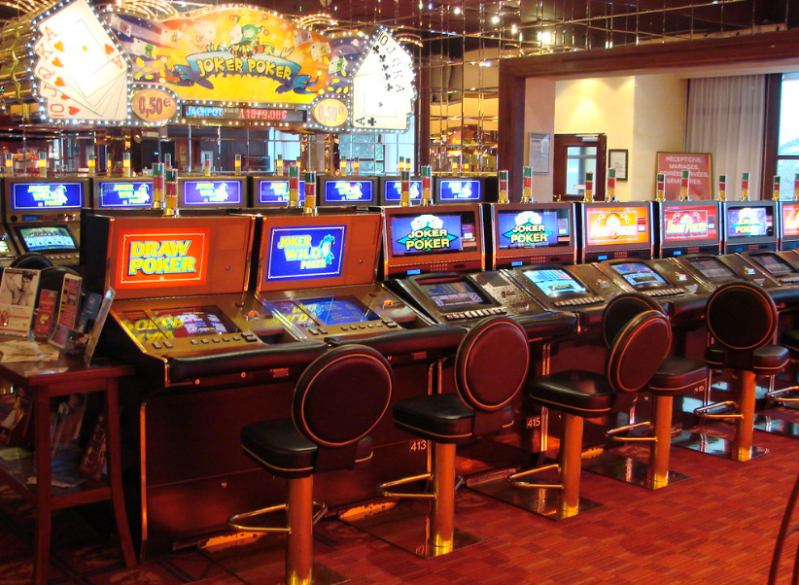
In the vibrant world of gaming, casino activities have long seized the attention of gamblers around the world. These options, including timeless card options like Texas Hold’em to the rotating reels of fruit machines, offer an fascinating blend of chance and tactics. While fortune undeniably plays a crucial role in influencing outcomes, the role of expertise in many casino games cannot be ignored. Comprehending how knowledge influences the game can enhance not only a gambler’s experience but also their likelihood of winning.
As we dig into the inner workings of casino games, it becomes evident that some require a solid grounding of wisdom and strategy. Activities like Texas Hold’em demand more than simple luck; they call for critical thinking, mental insight, and calculated decision-making. In opposition, other activities, such as roulette and slot machines, are primarily determined by luck, allowing players to rely solely on luck. This distinction raises fascinating questions about what truly drives success in the domain of casinos and how a participant’s skill set can sway the outcome in their advantage.
Understanding Expertise versus Luck within Casino Games
In the world of casino games, the discussion between skill and luck is a enduring one. Many games are frequently categorized into two groups: those that rely predominantly on chance, such as slot machines and roulette, and those where skill plays a significant role, like poker and 21. The difference is important because it affects not only gameplay strategies but also the approach players adopt when engaging with these games. While luck can play a decisive role in the short term, skilled players can boost their odds of winning over the long run in skill-based games.
Skill-based games, particularly poker, require players to understand odds, psychology, and game theory. A seasoned poker player can read rivals, make calculated bets, and understand when to fold, all of which can lead to more favorable outcomes. On the other hand, in games that are purely based on chance, no amount of skill can alter the odds. This implies that while a player may win big in one session, their success may often be subject to the vagaries of random outcomes rather than any strategic expertise.
In the end, both skill and luck coexist in the world of casino games, forming a vibrant environment for players. While games of chance can provide excitement and instant gratification, proficiency and strategy in skill-based games offer a richer level of engagement for those willing to invest time in refining their craft. This interaction between skill and luck defines the experiences of players and shapes their connection with the games they select to play.
The Impact of Skill on Game Outcomes
In the world of casino games, skill plays a crucial role in determining the results, especially in games where strategy and choices are essential. For example, in the game of poker, competitors must assess opponents, calculate probabilities, and make calculated bets to maximize their odds of winning. Unlike activities that rely purely on chance, such as slots or the roulette wheel, this game demands an understanding of both the game mechanics and the behavior of other participants, making skill a critical component of success.
Other skill-based activities, like the game of blackjack, also emphasize the significance of player skill. Understanding of basic strategy, card counting, and when to hit or stand can dramatically influence the house edge. A proficient 21 player can reduce this edge and improve their chances of success significantly. This contrasts sharply with activities that do not allow for such tactical play, demonstrating how the level of skill directly affects the potential for favorable outcomes.
Moreover, even within games deemed primarily luck-based, like craps, the decisions made by gamblers can impact their overall success. Choosing the optimal bets, comprehending the odds of different results, and controlling one’s bankroll are essential factors that can enhance a player’s experience and results. Thus, while luck remains a factor in casino games, ability can substantially affect how effectively participants navigate these environments, leading to more favorable results. 8KBET
Strategies for Skillful Play in Gaming Establishments
To excel in gambling games, players must develop a strong grasp of the rules and odds involved in each game. This foundational knowledge enables individuals to make informed choices, especially in skill-based games like poker and blackjack. Becoming acquainted oneself with game tactics, such as keeping track of cards in 21 or identifying betting patterns in Texas Hold’em, can significantly enhance a player’s odds of success. Rehearsing these strategies through mock games or low-risk games allows players to refine their skills without risking substantial amounts of cash at stake.
Another key strategy is money management. Players should establish a budget before entering the gaming establishment and adhere to it faithfully. This involves determining how much they are willing to lose and setting limits on how much they will wager in every gaming session. By keeping a regulated approach to spending, players can prolong their play and reduce the chance of significant losses. Additionally, taking breaks can help preserve a clear mind and prevent impulsive decisions that often lead to unfavorable outcomes.
Ultimately, emotional control is crucial in the high-stakes environment of a casino. Players must learn to manage their emotions, particularly during periods of success or defeats runs. Staying attentive and not allowing emotions influence gameplay can lead to more logical decisions. Methods such as deep breathing or stepping away from the table during intense moments can help keep calmness. By cultivating a steady state of mind, players can approach gambling games with confidence and skill, thereby enhancing their overall gaming experience and results.



